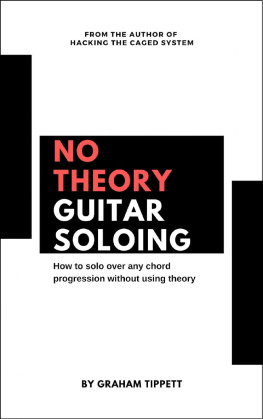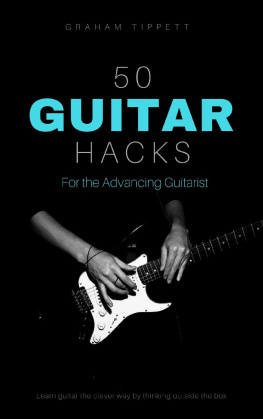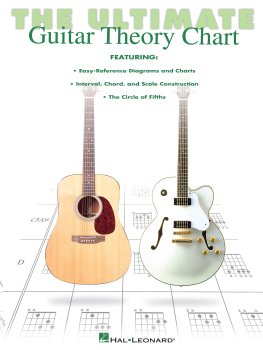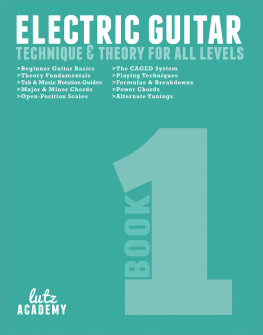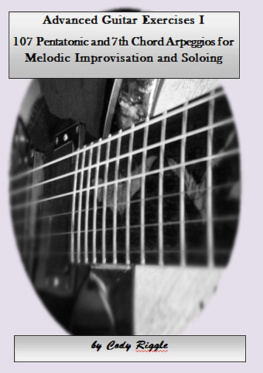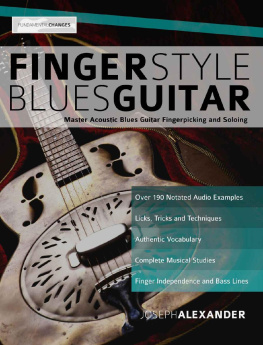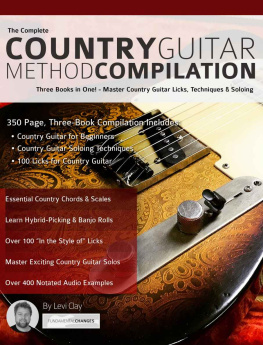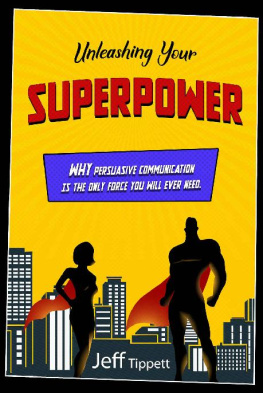Graham Tippett - No Theory Guitar Soloing
Here you can read online Graham Tippett - No Theory Guitar Soloing full text of the book (entire story) in english for free. Download pdf and epub, get meaning, cover and reviews about this ebook. year: 2018, publisher: Unlock the Guitar, genre: Home and family. Description of the work, (preface) as well as reviews are available. Best literature library LitArk.com created for fans of good reading and offers a wide selection of genres:
Romance novel
Science fiction
Adventure
Detective
Science
History
Home and family
Prose
Art
Politics
Computer
Non-fiction
Religion
Business
Children
Humor
Choose a favorite category and find really read worthwhile books. Enjoy immersion in the world of imagination, feel the emotions of the characters or learn something new for yourself, make an fascinating discovery.
- Book:No Theory Guitar Soloing
- Author:
- Publisher:Unlock the Guitar
- Genre:
- Year:2018
- Rating:5 / 5
- Favourites:Add to favourites
- Your mark:
- 100
- 1
- 2
- 3
- 4
- 5
No Theory Guitar Soloing: summary, description and annotation
We offer to read an annotation, description, summary or preface (depends on what the author of the book "No Theory Guitar Soloing" wrote himself). If you haven't found the necessary information about the book — write in the comments, we will try to find it.
No Theory Guitar Soloing — read online for free the complete book (whole text) full work
Below is the text of the book, divided by pages. System saving the place of the last page read, allows you to conveniently read the book "No Theory Guitar Soloing" online for free, without having to search again every time where you left off. Put a bookmark, and you can go to the page where you finished reading at any time.
Font size:
Interval:
Bookmark:
Graham Tippett 2018
Contents
I was watching a YouTube video a while back where Lee Anderton (of Andertons fame) gets a guitar lesson from Ariel Posen. Ariel tries his best to teach him a few things in a very thorough and well-meaning way, but about half-way through Lee says something along the lines of, Just teach me the quick and dirty way to do things, Im a middle-aged man who doesnt have the time (or the patience) to practice scales for 8 hours a day, which is both totally valid and completely doable on guitar as its one of the few instruments that lends itself well to a wide range of methodologies, be they theory-based or the other extreme.
This book was also inspired by many students of a variety of ages who came to me saying they just wanted to play and not be bogged down by theory and scales and whatnot. They werent looking for shortcuts, they just genuinely wanted to solo and sound good without having to learn theory in order to do it. Admittedly, I was discouraged at first but I put myself in their shoes and came up with this method to get to the good stuff faster, and sound good.
I wont deal with pentatonic scales here as youre probably already well-versed in those and are looking to be able to solo over simple and common chord progressions or add more variety to your improvisations. If youre looking for a system to learn pentatonic scales (and modes), which is also theory-lite, check out another of my books: Beyond Pentatonics.
All the music theory terms youll find in this book are for labeling purposes only and will help you recognize these concepts in songs or pieces you already know; theyll also help you find the information on the fretboard when you need it instead of fumbling around. Whats more, due to the simplicity of this approach, youll be able to reduce your thinking to a minimum and concentrate on making a musical contribution to whatever situation you find yourself in and making jamming/playing out a far more enjoyable experience.
I love this approach and often teach it to people who dont want to practice 10 hours a day, are not interested in theory or knowing the whys and wherefores of everything. They just want a straightforward if you learn this and play it here, itll sound good method, so that they can express themselves in a jam session, solo with more than just a pentatonic scale, or play out on the weekends.
If you have even half an hour a day to play/practice guitar, you can make a world of progress with your soloing by using this method.
To your best playing yet,
Graham Tippett
www.unlocktheguitar.net
www.pentatonics.pro
Common Keys F Major
Well use the term key to refer to a group of notes and a group of chords, thats all. There are 12 keys in music and a handful of them are far more common than the others. In these first few sections, well look at those common keys in-depth so that you can get the hang of the method.
Well start with F Major. Here are the three patterns you need to learn. You can do this while watching TV. Your objective is to learn where the notes fall on the neck and build up a little technique by running these patterns over and over; simply rinse and repeat until you no longer need to look at these diagrams to find the notes. Its not necessary to learn the names of the notes, though knowing where the starting note (in red) is will be useful when moving these patterns to other keys.



Remember, this is a generic note pattern which weve labeled F Major, or the key of F Major. We can start and end the pattern on any of its notes, and we can use it to improvise over any of the following chords:

Therefore, if someones playing a Dm in isolation, you can play the above patterns over it and itll sound good, just remember to relate your licks and runs to D or use your ear to guide you around the pattern if you cant find a D that easily (or use the open D string). This works for any other chord in the wheel.
If someones playing a group of chords from the wheel, you can also solo over those to your hearts content using the above patterns, and it doesnt matter which chord they start or end on. Alternatively, if youve written a piece with the above chords, you can now solo over it with the scale patterns above.
Dont worry about the E chord at this point, you probably wont use it all that often but know that the same rules apply.
If someones playing any of the chords (or a group of them) below, you can also solo over them using this pattern. Theyre just variations on the ones above, so the same logic applies.
m=minor, M=major

Thats It?
Yes, try it out. The only work you need to put in is learning the scale patterns, but weve reduced them to just three instead of five or seven which you may have come across in other scale systems. Once you have the patterns down, let your ear be your guide and through trial and error, youll be coming up with some great-sounding stuff in no time! Youll be pleased to know that the three patterns are the same for all 12 keys, so theyre a sound (and rewarding) investment of your precious spare time.
In the first chapter, we looked at soloing in the key of F Major and the three patterns you need to learn to be able to do this. In this chapter, well look at the exact same concept only this time in C, or the key of C Major. This is a very popular key, if not the most popular key in rock/pop music, so its well-worth getting acquainted with its chords and scale patterns.
Here are the three scale patterns you need to learn. Youll be pleased to know that theyre the exact same patterns we learned for F Major, only now they start on C and come in a different order.



Youll notice that the first pattern features some open strings. If you like this pattern, go ahead and use it. If youd like to avoid open strings for the time being, use the one below; its the same pattern but up at the 12th fret.

If youve already learned the patterns for F Major, you should have no trouble learning the patterns for C Major. Once more, the chord wheel below shows you which chords you can happily solo over using the above patterns.

Font size:
Interval:
Bookmark:
Similar books «No Theory Guitar Soloing»
Look at similar books to No Theory Guitar Soloing. We have selected literature similar in name and meaning in the hope of providing readers with more options to find new, interesting, not yet read works.
Discussion, reviews of the book No Theory Guitar Soloing and just readers' own opinions. Leave your comments, write what you think about the work, its meaning or the main characters. Specify what exactly you liked and what you didn't like, and why you think so.

